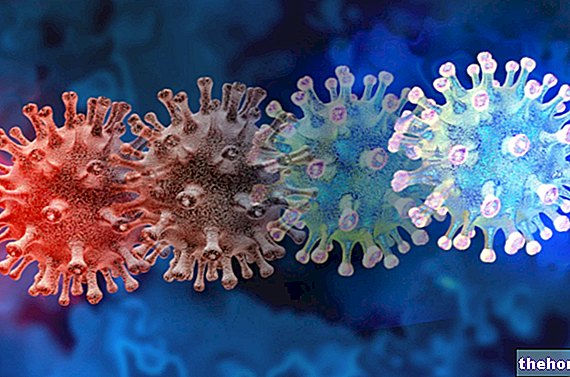Before the advent of mass vaccinations, measles represented, together with mumps, rubella and chicken pox, a "typical infection of childhood"; in particular, it mainly affected subjects under the age of 5.
Measles is mainly transmitted by direct contact, via saliva and volatile droplets emitted by coughing, sneezing or speaking; however, it is also possible to transmit it by indirect contact, that is by touching objects contaminated by the infectious agent.
Measles usually starts with a runny nose, sneezing, fever, general malaise, loss of appetite, cough, and fatigue; after which, 3-4 days after the onset of the first symptoms, it causes characteristic brownish-red spots, slightly raised, all over the body.
Measles is an "infection that resolves in a benevolent way for 70% of patients; in the remaining 30%, however, it is associated with one or more complications, some of which are very serious from a clinical point of view.
Possible complications of measles include: acute diarrhea (common), otitis media (common), conjunctivitis (common), pneumonia (common), encephalitis (uncommon), meningitis (uncommon), epilepsy (uncommon), strabismus (uncommon) and optic neuritis (rare); some of these complications (eg encephalitis) can be fatal.
, in the same way as a child in the first years of life.
To this it should be added that, for an adult who is not immunized against measles, the risk of contracting the latter is greater if he suffers from some condition that depresses the immune defenses, such as diabetes mellitus, AIDS, autoimmune diseases, the intake of chemotherapy or cortisone drugs, etc.
However, it should also be noted that, in developed countries such as Italy, where the measles vaccine has been routine for several decades, the chances of contracting measles are quite remote for a non-immunized adult, as vaccinated people create a sort of barrier around him (if the virus cannot infect anyone, it cannot spread).




























